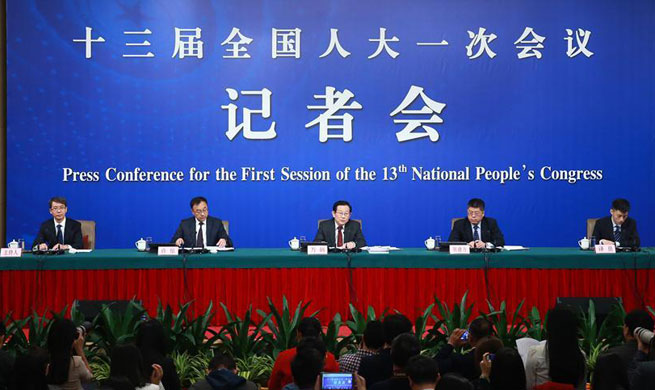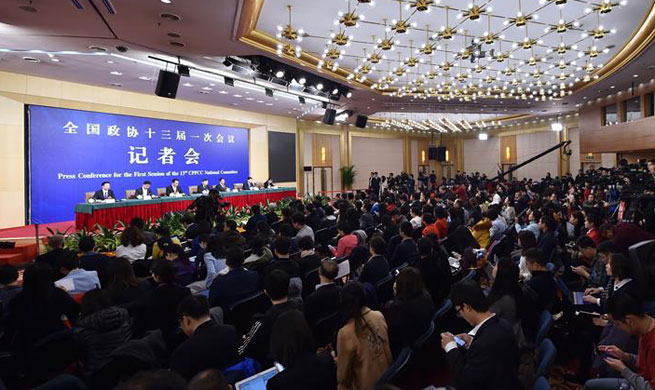NEW YORK, March 9 (Xinhua) -- Being the world's largest building construction market, China can offer many business opportunities for American companies specialized in energy efficiency, a U.S. industry expert has said.
"We believe there are great opportunities in China to design and construct new buildings that are very energy efficient," said Clay Nesler, vice president of Global Sustainability and Industry Initiatives in Johnson Controls, in a recent interview with Xinhua.
A global company with energy efficiency solutions as one of its core businesses, Johnson Controls deems the Asia-Pacific region, particularly China, as its most important growth market, he said. The Wisconsin-based firm launched its Asia-Pacific headquarters in Shanghai last year.
"China is very critical and committed in the area of energy efficiency, particularly in buildings," Nesler said, "it's a market interest to many companies around the world, including the United States."
Enterprises and universities from the world's two largest economies have entered into close cooperation in this field under the U.S.-China Clean Energy Research Center Building Energy Efficiency Consortium (CERC-BEE), according to Nesler, who also served as chair of the Industrial Advisory Board of the consortium.
In the coming decade, half of all the new buildings in the world would be built in China, said Nesler, leading to a big increase in building energy consumption.
On the other hand, China has had a proactive national plan in place for building energy efficiency, Nesler noted.
As part of its 13th Five-Year Plan for the 2016-2020 period, China set out binding targets that by 2020 at least 50 percent of all newly constructed buildings in urban areas should be certified green buildings, and more than 60 percent of the existing urban residential buildings should be upgraded to be energy efficient.
In Nesler's view, this brings forth massive market potential for the industry of building energy efficiency. It was projected that the Chinese market volume for this industry could reach 230 billion yuan (36.3 billion U.S. dollars) by 2020.
On actions to reduce energy use in buildings, Nesler believed that China has an advantage over the United States, which is the ability to fully carry out plans.
"China has a very centralized and coordinated way of cascading policy from the national level down to an individual province, to a city, and in effect to a district level," he said. "That's a structure which many countries don't have to get a uniform implementation of the plans."
When asked about the best approach to optimize energy efficiency in buildings, Nesler said it depends on the integration of new technologies, building materials, renewables, equipment and other factors.
As China is constructing a good amount of new buildings, the opportunity in the world's second-largest economy is to start the process before the construction, he said.
"It involves integrated design, including a very detailed energy simulation of the building on computer before it's ever built, just like we did in our Shanghai headquarters. That enables us to estimate very accurately how much energy the building will consume."
Nesler said that Johnson Controls' Shanghai facility, as a demonstration project, "uses 48 percent less energy than a traditional modern office building in Shanghai and the payback period of the extra investment would be less than 10 years."
"Among the other things we do to address building energy efficiency, we very much focus on the building materials," he added.

















